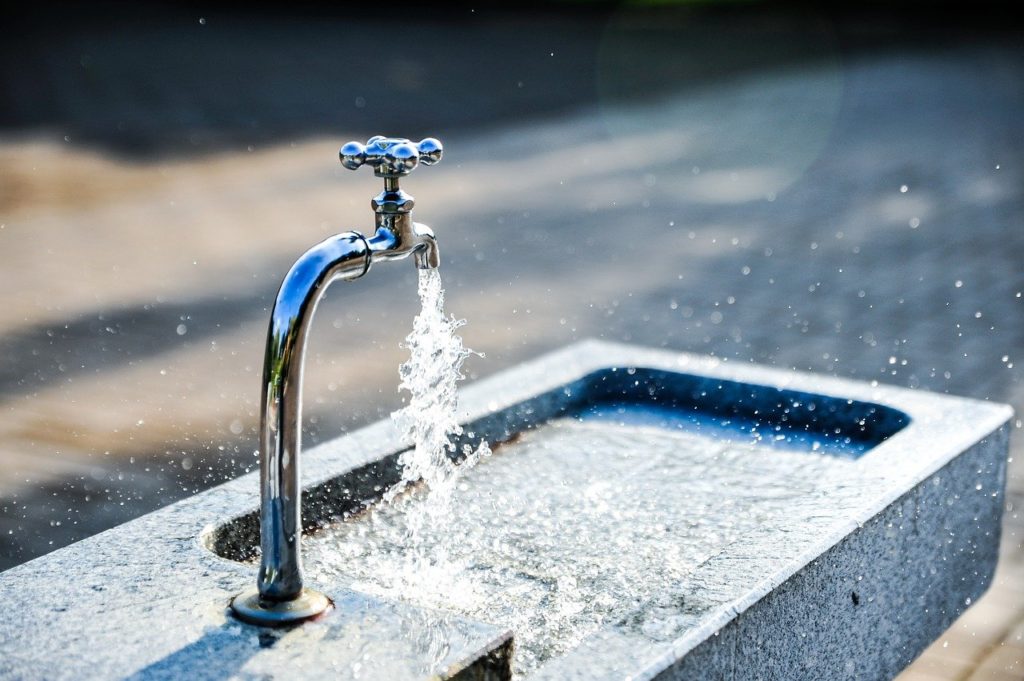Hectron water filtration solutions for drinking water treatment

Hectron water filtration solutions for drinking water treatment
Hectron filters offer good answers to filtration problems in drinking water production and treatment plants. With the AG automatic filter range, these protections can be implemented. Numerous examples of installations detailed below easily demonstrate that Hectron products are suitable for a wide variety of problems.
Why filter water in drinking water installations?
Drinking water has to meet various quality standards with regard to quality, harmlessness and many other parameters that influence the final quality of the water. One parameter that plays an important role in the appearance of the water produced is turbidity. This is the presence or absence of undissolved matter that makes the water cloudy or less transparent. Although this does not always have an effect on potability, it is still an unpleasant appearance that will deter or cast doubt in the minds of many end users.
Current standards require that the turbidity of drinking water should be below 0.5 NTU. Unfortunately, during particularly long droughts or, on the contrary, periods of heavy rainfall, it is not uncommon to experience occasional turbidity problems in addition to turbidity concerns related to the nature of the water being pumped.
Drinking water production plants must have practical technical solutions to deal with these problems without too much human intervention or too much extra cost.
Which Hectron solutions for drinking water treatment plants?
Hectron offers a wide range of automatic filtration solutions. For drinking water treatment plants, they can be used mainly in two cases: the protection of reverse osmosis systems and also the protection of ultrafiltration systems.
For reverse osmosis protection, Hectron filters are installed upstream. It is a rather fine filtration that will be necessary (very often of the order of 0.5 to 1 micron). This will protect the membranes that carry out the osmosis: they will then have a longer life.
In the case of ultrafiltration systems, the filtration requirement will be around 100 microns. The ultrafiltration will then be efficiently protected, with no human intervention and little maintenance.
The AG range of automatic filters from Hectron is perfectly suited to these needs. In addition, they are fully compatible with the requirements of the Directorate General of Health for installation in drinking water production systems. All these filters are available in ACS (Attestation de Conformité Sanitaire) version.
The advantages of AG filters are numerous, but the main ones can be mentioned:
- They operate in a fully automated way
- No consumables are required for their operation
- The filtration thresholds offered start at very low levels
Overall, the AG range of automatic filters has a rather wide range of filtration thresholds. It ranges from 0.5-1 microns to 500 microns.
In addition, the AG automatic filters are all equipped with a suction ramp cleaning system that is only activated when necessary. This need is triggered when a pressure difference between upstream and downstream is detected.
The AG100 automatic filter
This automatic filter, like all the other filters in the range, can handle a maximum pressure of 5 bar. It offers a range of filtration thresholds from 0.5-1 micron to 500 microns. It has a flow rate of 8 m3/h and a 1″ inlet/outlet with female thread.
One example of the use of this automatic filter is the Irrigaronne / SNERHA project, located in Carcassonne in the Aude. A pre-filtration system was installed with an AG100-E filter providing 100 micron filtration to protect an entire spring water treatment system at 2 m3/h.
For the Veolia company, as part of a project to supply water to the hamlet of Severt in the commune of Apremont (73), an AG100-E filter was installed and provides 11 micron filtration.
The AG200 automatic filter
This automatic filter has the same technical characteristics as the previous one, with the difference that its admissible flow rate is 45 m3/h and that it has a 2″ female threaded inlet/outlet, 3″ male threaded inlet/outlet and DN80 flanges.
An example of a realization is the drinking water plant of Sarrazac in Dordogne for Suez Degrémont FA. Pre-treated raw water is filtered at the outlet of the flotation device by an AG200-E 316L automatic filter operating at a flow rate of 20 m3/h and a pressure of 7 Bar. In the same vein, for Saur, on Reunion Island, the 2 drinking water treatment units of Bernica and Charpentier are equipped with ACS AG200-E and AG300-E automatic filters, ensuring a 20 micron filtration.
The AG300 automatic filter
This automatic filter is the largest in terms of size in the Hectron range of automatic filters and is fitted with 3″ male thread or flanges in nominal diameters of 100 and 150. It accepts a maximum flow rate of 120 m3/h.
An example of its use in drinking water units is the Communauté de communes du Pays Rochois (74) where the SEMG has a groundwater filtration system for the drinking water network with a flow rate of 40 m3/h. Bag filters that required tedious weekly cleaning were advantageously replaced by two AG300-E filters with a filtration threshold of 50 microns.
Another notable example is Veolia who installed a Hectron AG300-E filter with a filtration threshold of 1-3 microns to filter the catchment water for the supply of the village of Seythenex (74) to remove slight turbidity.
The AG400 automatic filter
This is the largest filter in the AG range and can handle flows up to 340 m3/h. Its inlets and outlets are only available with flanges of DN100, DN150, DN200 and DN250.
One project where this type of automatic filter has been used is the drinking water treatment plant at Ste Cécile in the Channel for the company Stereau. In this case, it is the protection of ultra-filtration membranes that is ensured with a flow rate of 211 m3/h and a filtration at 200 microns.
